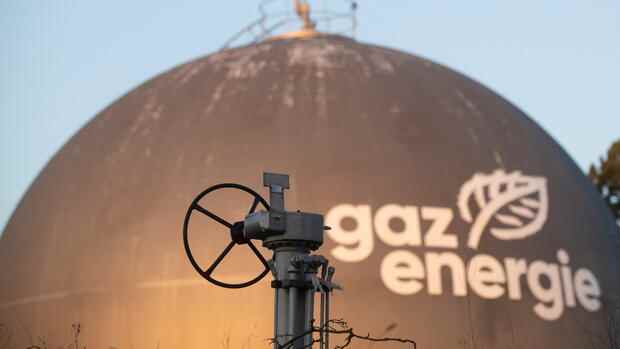Berlin, Dusseldorf If Moscow threatens to stop supplying natural gas, this is a problem for Germany in particular: more than half of the gas consumption in this country is covered by imports from Russia. This energy dependency cannot be changed even in the short term.
The supply is secured for the coming winter. After all, Germany has the largest natural gas storage facilities in Europe. But Germany also consumes the most gas of any European member state – and not just for heating. Here are answers to the most important questions about gas consumption in Germany.
What is natural gas used for in Germany?
In Germany, natural gas is mainly used to provide heat and hot water. Anyone who talks about the energy transition usually talks about electricity or transport. The generation of heating and cooling makes up almost half of the energy consumed in Germany.
Gas is the most used energy source in this country when it comes to heating. According to an evaluation by the industry association BDEW, around half of all apartments in Germany are still heated with gas. A quarter of all apartments are heated with oil.
Top jobs of the day
Find the best jobs now and
be notified by email.
The building sector is one of the largest energy consumers. Around 75 percent of residential buildings in Germany are equipped with oil or gas heating, and around a third of the climate-damaging greenhouse gases in Germany can be attributed to the building sector. According to the Federal Environment Agency, only 15.6 percent of the energy in the heating sector comes from renewable energies.
Natural gas is also used to generate electricity and as a fuel for transport.
What is natural gas used for in industry?
Industry consumes the most energy after transport. 31 percent of the energy used by industry is natural gas. It is therefore the most important raw material for industry, for example for the production of plastic, fertilizers or adhesives. Almost 70 percent of the industrial energy consumed is used to generate so-called process heat. This comes mainly from fossil sources.
Natural gas is the most important raw material for industry, for example for the production of plastics, fertilizers or adhesives.
(Photo: imago images/Westend61)
Natural gas is mostly used for specialized processes, such as melting, annealing, hardening, forming, drying and baking. It is used in a wide variety of industries such as the metal, cement, glass, ceramics, food and textile industries or in drying systems and spraying plants.
How much electricity is generated from natural gas?
In 2021, almost 90 billion kilowatt hours (KWh) of electricity were generated from natural gas in Germany. For comparison: In 2021, around 230 billion kWh of electrical energy was provided from renewable energy, 117 billion of which came from wind power. Electricity from natural gas therefore plays a lesser role. However, this is considered to be an important way of compensating for fluctuations in renewable energy sources.
Is natural gas environmentally friendly?
Like oil and coal, natural gas is one of the fossil fuels, but causes fewer CO2 emissions. Natural gas is therefore considered indispensable for the path to climate neutrality by 2045.
Would it be possible to change the heating systems at short notice?
A short-term conversion from household heating systems to electrically operated heat pumps or other electrically operated heating systems is not possible. Most recently, the Wuppertal Institute for Climate, Environment and Energy emphasized that the heating supply for buildings in Germany could be completely secured by renewable energies from 2035, ten years earlier than previously planned.
Are there natural gas sources in Germany?
Yes, especially in Lower Saxony. Domestic natural gas production currently covers 5.2 percent of gas consumption. In 2001, German natural gas production still corresponded to 21 percent of the country’s demand.
The natural gas supply from domestic production could even be increased by ten to 20 percent for a few years, according to the Association for Natural Gas, Oil and Geoenergy (BVEG). What is needed, however, is social, political and official support, which is currently lacking.
What would be the consequences of losing Russian gas?
A failure of gas supplies that cannot be fully compensated for would in all likelihood result in supply restrictions for industrial companies. “When the going gets tough, rationing may be unavoidable,” said climate economist Ottmar Edenhofer recently. “But the heating in private households will remain in operation. On the other hand, users in industry will have to accept limitations.”
Where will natural gas come from in the future?
Germany gets more than half of its gas from Russia. The other half comes mainly from Norway and the Netherlands. Ever since Russia launched a war of aggression against Ukraine, politicians have been under great pressure to find ways to liberate Germany from its dependency.
Because the Netherlands is looking forward to saying goodbye to natural gas production and Norway is at the limit of its capacities, Federal Minister of Economics Robert Habeck (Greens) is relying on liquefied natural gas from the USA, Qatar and other export nations.
More: Gas price breaks all records – call for a price cap
